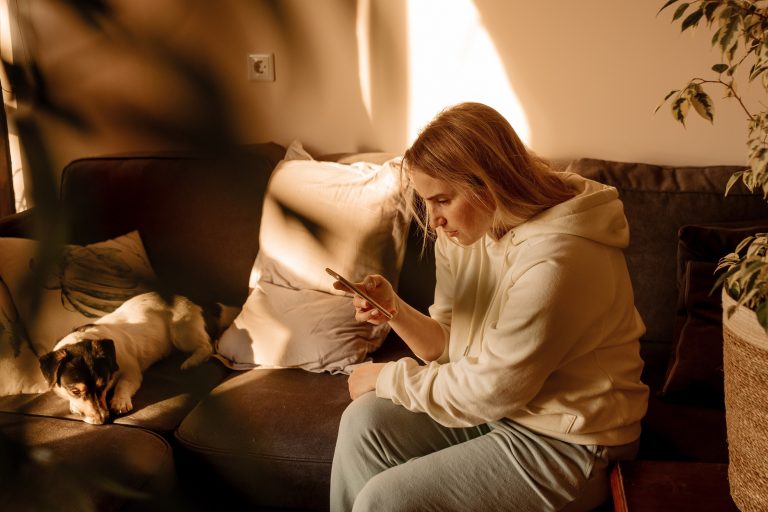How we feel affects how we think, and vice versa. When we are in pain, or not feeling our best, we often feel depressed or stressed. When we are depressed or stressed, we often feel tense, uncomfortable, maybe even a bit ill. This connection actually goes much deeper than that. Our minds and body can communicate in ways we don’t notice, with psychological issues causing physical issues, and vice versa.
Posture is a great example of this. The way we sit and the way we stand is having very real, very noticeable affect on our mental health, and often in ways that none of us notice.
What’s Wrong With How We Sit?
Right now, most of us are hunched over on computer screens, slouching on a couch, or hanging our heads forward as we look at our phones. Most of us are not exercising or, if we are, we are focusing on visible muscles and weight loss to improve our appearance, not necessarily the muscles responsible for posture and gait.
The way we sit when on our computer or on our phones isn’t harmless. In fact, it causes some muscles to tighten, some muscles to strength, some muscles to stretch, and some muscles to become weak. We also may not notice these changes occurring because other muscles try to pick up the slack.
For example, a person can become “quad dominant.” A quad dominant person has quadriceps that do all the work of their legs, while the hamstrings and glutes (back of the legs and rear ends) end up getting weaker. They may also stop communicating with the leg muscles altogether, so quadriceps continue to get stronger and pull the body forward.
Our habits of slouching and leaning forward cause many of the front muscles of our body to tighten, while the back muscles get stretched or weaker.
How Does This Affect Mental Health?
Most of these physiological changes will cause us major problems as we get older, but may not be causing many issues now. After all, our existing muscles are still able to do the work, and many of us are young enough that the effects of these muscular changes do not become apparent until we reach the age where our muscles become harder to strengthen – often 50 to 60+ years old.
But that doesn’t mean they’re not affecting us in ways we do not notice, and this is where anxiety comes in. When our posture muscles are not functioning properly, it affects the way we breathe. Our posture causes our chest and neck muscles to do more breathing. We start to have shallower breaths, and breathe in ways that are not efficient or healthy for our body.
One of the effects that these breathing patterns can have is triggering the body into “stress mode.” Our bodies start to react as though they’re under extreme stress, and as they react, we start to experience more anxiety. That means that it’s possible to draw a direct line between our posture habits and anxiety symptoms, all without noticing that our breathing patterns or posture have changed.
People prone to more severe anxiety or panic attacks may have it even worse. That is because this shallow breathing can lead to hyperventilation, an issue that can trigger panic attacks and cause:
- Lightheadedness
- Chest pains
- Dizziness
- Rapid heartbeat
- Trouble breathing
All of this just because of the way we sit and how little physical activity we do.
Will Fixing Posture Cure Anxiety?
Altering your posture could be an effective tool for reducing anxiety symptoms. But unfortunately, it is unlikely to cure anxiety. Once a person experiences persistent anxiety, it typically becomes a mental health condition that benefits from professional treatment. Anxiety, depression, and other mental health conditions change how we think, and psychotherapy is one of the most effective ways to address it.
Similarly, anxiety and depression can also lead to postural changes. Studies have shown that adults that struggle with depression, for example, are more likely to slouch and have poor posture when they walk. Why this occurs is not entirely clear, but, because of this very same mind/body connection, the result is that how we feel can affect how we walk.
If you struggle with anxiety, you should consider seeing a therapist on Long Island. But pay attention to your posture as well. If you’re someone that doesn’t exercise often, talking to a personal trainer about how to exercise those posterior muscles can at least help you breathe better, which in turn will support your anxiety treatment and recovery.

